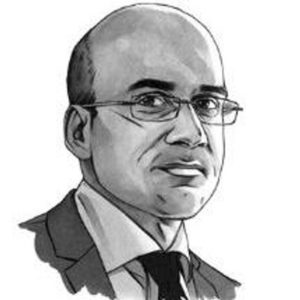
Professor Atif Mian is a prominent Pakistani-American economist and a professor of economics at Princeton university. 2 weeks ago he was nominated to be a member of Imran Khan’s “Economic Advisory Council” (a think tank of sorts that is supposed to generate ideas for the new PTI government; it is not at all clear what influence, if any, this group will have in real life). This set off a controversy in Pakistan because Atif Mian is an Ahmedi and Ahmedis are widely reviled as heretics, apostates and traitors in Pakistan. After an initial attempt to defend his appointment (including the obligatory Jinnah quote and reference to the fact that an Ahmedi, Sir Zafrullah, was one of Jinnah’s closest advisers and Pakistan’s first foreign minister) the Imran Khan government backed down and asked him to leave the council.
Since then his defenders (mostly liberals who believe religion should play no role in such appointments and experts should be judged on their professional skills and not their religion) and opponents (Islamists, PTI-type Islamist-lite folks who believe Ahmedis in particular should not be appointed to any important position because they are fake Muslims and potential traitors, etc etc) have been arguing about this case on social media. This post is an attempt to provide background and clarify some of the issues raised by both sides.. (some of the background material was published earlier in a post I wrote in 2012 for 3quarksdaily.com)
The Ahmediya movement was started in Punjab in 19th century British India, by Mirza Ghulam Ahmed of Qadiyan. He seems to have been a quiet, religious loner who brooded about the challenges faced by his faith and his people. The decisive military and economic superiority of Western civilization over the Islamicate world had produced a variety of efforts at reform and revitalization. They ranged from the Wahabi-influenced puritanical Jihadism of Syed Ahmed Barelvi (who led an extremely fanatical jihadist movement in what is now Khyber Pakhtunkhwah, until he was defeated by superior Sikh firepower and a reaction to his extreme views among the local Muslims) to the anglophile reformism of Sir Syed Ahmed Khan (founder of Aligarh Muslim University). Mirza Ghulam Ahmed’s response was to start a movement of religious revival that was built around his own charismatic claims. Though he contradicted some mainstream Islamist claims about the finality of prophet-hood and the absolute necessity of military Jihad (military jihad as a Muslim duty is now so widely downplayed that it is hard for Westerners and even Westernized Muslims to figure out why his claim was considered so controversial). His movement was socially conservative and even puritanical and he vigorously defended Islam, especially against Christian missionaries and Hindu critics. He found some support among modestly educated middle class Punjabi Muslims (including Islamist icon Allama Mohammed Iqbal, who either flirted with joining the movement or actually joined for a few years, depending on what version you believe). As his movement (and his claims regarding his own status as prophet or messiah) grew, it also drew orthodox opposition, especially from the dominant Sufi-oriented Barelvi Sunni sect. Ironically this branch of local Islam enjoyed some American (and world media) attention as “moderate and tolerant Muslims” in contrast to their Deobandi/Wahhabi brethren in the aftermath of 9-11 (though this attempt to fight Wahabi/Deobandi fire with Sufi-Barelvi water seems to have run into some trouble recently).
This increasingly vocal opposition (complete with fatwas from Mecca declaring the Ahmedis as apostates liable to the death penalty if they did not repent) led to a sharper separation between Ahmedis and other Muslim sects, but the Ahmedis themselves always claimed to be Muslims and made efforts to remain fully engaged in “Muslim causes”. In their own view they were reforming and purifying Islam, not opposing it, so they had a legitimate interest in the cause of oppressed Muslims everywhere (e.g. they took a leading role in supporting Kashmiri Muslims against their Dogra-Hindu ruler). Some Ahmedis played a very prominent role in the Pakistan movement, including Sir Zafrullah Khan, who wrote a Pakistan proposal for the viceroy in Feb 1940 and shared it with Jinnah before the Muslim League passed its Lahore resolution in March 1940. He remained one of Jinnah’s closest associates and was the first foreign minister of Pakistan and Jinnah’s representative on the boundary commission that divided India) and others held prominent positions in the new state and fought for it with distinction (most famously, General Akhtar Malik in the 1965 war with India). It is likely that neither they, nor the relatively Westernized leadership of the Muslim league had a clear idea of what lay in store for them in Pakistan. Even more ironically, the Ahmedis themselves aggressively pursued “blasphemers” (e.g. Pandit Lekh Ram in Punjab in 1897). It is hard to read this Ahmedi polemic against Lekh Ram without thinking about where the Ahmedis themselves now lie in relation to the blasphemy meme. Continue reading Ahmedis and Pakistan. Some background..